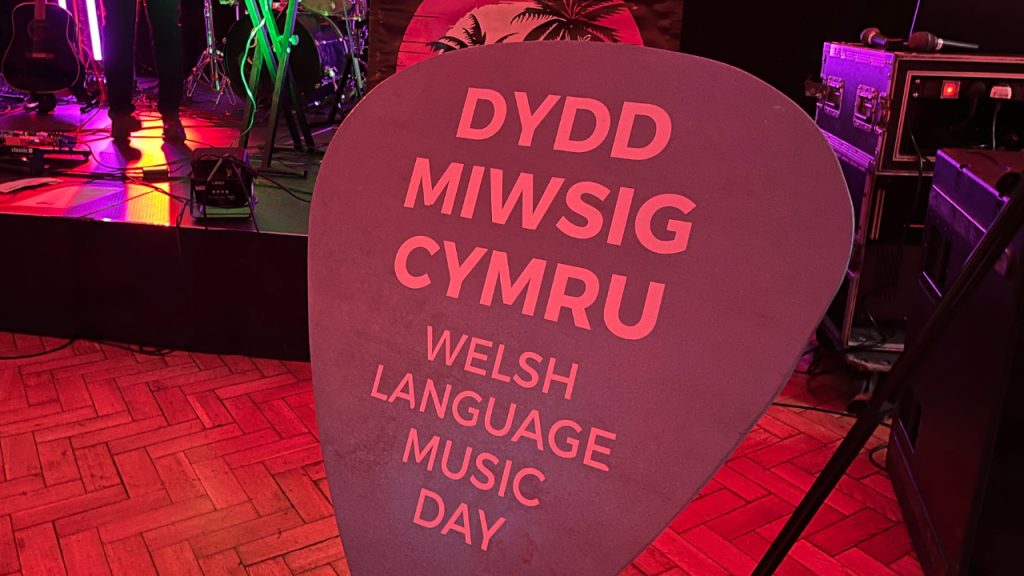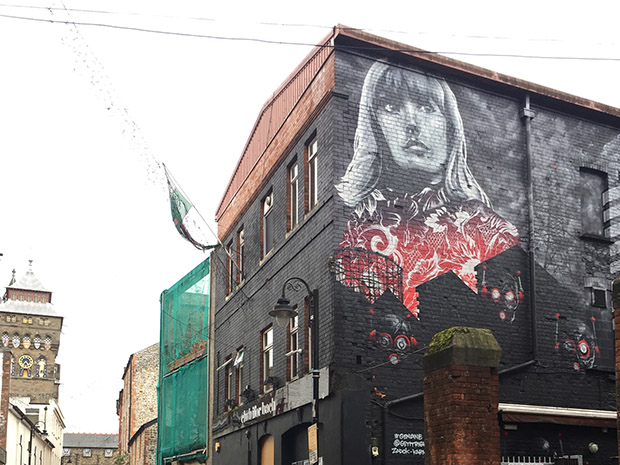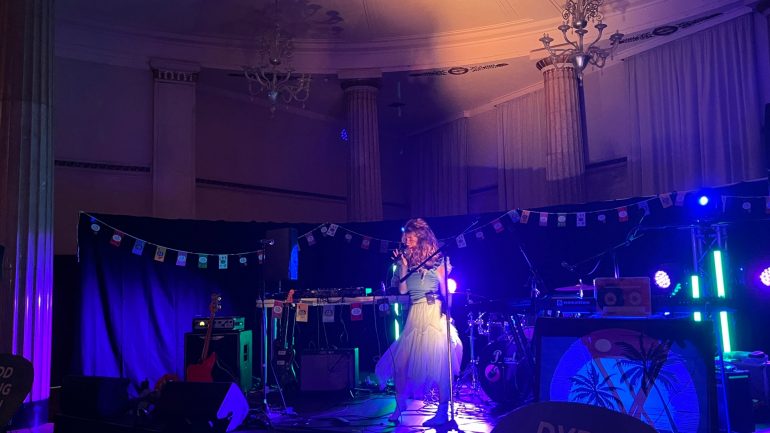On Dydd Miwsig Cymru, musicians say it has broken genre barriers for Welsh music.
WELSH language music today is about more than indie music, artists have said as Dydd Miwsig Cymru – or Welsh Language Music Day – celebrates its tenth anniversary.
Started by radio presenter Huw Stephens, Welsh Language Music Day was established with the aim of promoting and celebrating Welsh language music.
But, after a decade of events, musicians involved in the scene have said that its biggest impact may be its role in expanding diversity within Welsh language music.
“The Welsh language isn’t a genre. The Welsh language is a language,” said Mali Hâf, whose electropop songs are a far cry from the Welsh music she heard at Welsh music festivals like Maes B when she was younger.
“The music wasn’t really for me. It was just indie bands, which are fine, but it wasn’t my taste. It was dad music.”
Tomos Lynch, a promoter at Clwb Ifor Bach who books Welsh language music acts, also thinks that the scene has moved beyond old stereotypes, as it no longer feels dominated by “indie boys” anymore.
For him, Welsh language music has always covered a number of genres, but he thinks it’s significant that electronic, rap and reggae acts are now reaching the top of festival lineups.
“I find it really frustrating when people consider Welsh language music to be its own genre,” said Tomos.

Dom Jones, one half of Welsh rap duo Dom & Lloyd, agrees that the last ten years have seen increased diversity within Welsh language music, both in terms of genres and ethnicities.
“Music is something that everyone can enjoy,” said Dom, pointing out that though he can’t speak German, it doesn’t stop him from being able to listen to German music.
“Everyone can enjoy Welsh language music, you don’t have to understand it,” said Mali Hâf.
Tomos points to the international success of Irish language rap group Kneecap as proof that audiences don’t need to understand the language of a song to still enjoy it.
“Kneecap came to Cardiff recently and very few people here can speak Irish. A lot of our own gigs at Clwb don’t just have a Welsh language speaking crowd. People in Cardiff come for good music.”

Adwaith, recently named by Dydd Miwsig Cymru as the most influential Welsh artists of the decade, also owe part of their success to the event.
“Without Dydd Miwsig Cymru, we wouldn’t have had the shows that we do,” said bass player Gwenllian Anthony.
With their third album, Solas, out on this year’s Dydd Miwsig, the band also believe that the event has gone a long way in helping to shine a spotlight on the Welsh language music scene.
As a band, they’ve been fortunate to play gigs around the world, suggesting that there is an audience for music in Welsh outside of the Welsh bubble.
For Tomos at Clwb Ifor Bach, part of the global success of Welsh language music is thanks to streaming, which has given smaller bands a reach they may have never had before.
“Now, someone from Berlin can discover a band like Adwaith,” he said.
While the day helps champion the Welsh language more generally, musician Mali Hâf doesn’t want that to get in the way of people just enjoying the music.
“Why can’t we have a general day for just Welsh Music as well? I don’t want anyone to feel like they’re missing out because they don’t speak the language.”
Looking ahead to the next ten years of Dydd Miwsig Cymru, Tomos thinks that while Wales won’t be getting a Welsh language act on the level of Sabrina Carpenter any time soon, it is producing acts that have found audiences for them all around the world.
Dydd Miwsig Cymru have compiled a playlist of Welsh language music on Spotify, which can be accessed here.



